Ready to build your own Founder-Led Growth engine? Book a Strategy Call
Frontlines.io | Where B2B Founders Talk GTM.
Strategic Communications Advisory For Visionary Founders
Conversation
Highlights
From Organic Marketplaces to Carbon Credits: How One Founder’s Mission-Driven Approach Is Reshaping Climate Tech
In a recent episode of Category Visionaries, Josh Knauer shared how his unconventional approach to building and scaling companies has led to his latest venture, Reseed, which is transforming how farmers participate in carbon credit markets. What’s particularly striking about Josh’s journey is his consistent focus on mission alignment over traditional startup metrics.
The seeds of this approach were planted in 1996 when Josh launched an e-commerce platform for natural products, well before organic standards even existed in the United States. “We had to build out a set of methodologies that would allow the community to actually define the values and standards that they cared about,” Josh explains. This early experiment in community-driven standards would later influence his approach to carbon credit verification.
Fast forward to today, and Josh is tackling an even bigger challenge with Reseed. The company aims to help stabilize farming communities while addressing climate change through carbon credits. What’s remarkable is that despite agriculture’s massive potential impact on carbon sequestration, “less than 1%, in fact, it’s 0.03% of carbon credits on the market today come from farming or agriculture in any form.”
This massive market inefficiency becomes even more striking when considering the current state of carbon credits. “The majority of carbon credits currently in the marketplace actually come from fossil fuel based activities,” Josh reveals, highlighting a counterintuitive reality where the very industries contributing to climate change are the ones primarily benefiting from carbon credit markets.
Reseed’s approach to this challenge is fundamentally different from many climate tech startups. While others focus on complex mechanical solutions, Josh emphasizes the power of working with existing farming communities. “We have literally billions of hands in farmers that can be put to use to solve this problem. They want to do it as extra income, wildly incentivized to actively participate in this market.”
This focus on practical, community-based solutions extends to how Josh approaches fundraising. Despite having partnerships with companies like Google and sophisticated AI technology that would typically attract venture capital, he chose a different path. “As soon as I started talking to folks in that space, I realized they’re not actually deploying capital, they’re talking about it, but they’re not doing it,” he explains. Instead, he focused on family offices and individual investors who aligned with Reseed’s mission.
His fundraising philosophy is refreshingly straightforward: “If you’re doing what everybody else is doing, you’re not doing it. And you have to find an innovative track or tact and set of tactics and strategy for how you’re going to go about raising money.”
Looking ahead, Josh sees ecosystem services becoming a major asset class. “We are working right now with financing vehicles… that are basically starting to use our carbon credits as the base asset of their funds and are projecting… twelve to 15% to 20% annual returns for their investors.” But more importantly, he emphasizes that “you’re investing in the thing that’s going to save your life. And that’s a pretty strong argument.”
For founders in the climate tech space, Josh’s journey offers valuable lessons about the power of mission alignment, the importance of working with existing communities, and the potential of finding unconventional solutions to massive problems. In a world where climate tech often focuses on complex technological solutions, Reseed’s approach of empowering farming communities while building a profitable business model stands out as a compelling alternative path forward.
Actionable
Takeaways
Leverage Past Innovations to Inform Future Ventures:
Josh's journey from creating an online marketplace for natural products to integrating data across sectors illustrates the value of using insights from past experiences to address current challenges innovatively.
Identify Underleveraged Markets for Impact:
By focusing on agricultural carbon credits, Josh highlights the importance of identifying gaps in existing markets—such as the low percentage of carbon credits from agriculture—and leveraging them for significant environmental and economic impact.
Build Business Models that Support Your Mission:
Reseed’s approach to stabilizing farmers' incomes through carbon credits underlines the effectiveness of creating business models that align closely with broader social and environmental goals, ensuring sustainability and impact.
Focus on Data Transparency and Integrity:
Emphasizing the need for auditable, transparent data in the carbon credit market, Josh points out the necessity for startups to adopt standards that ensure their innovations are both verifiable and impactful, building trust with consumers and investors.
Engage with Investors Who Share Your Vision:
Josh’s fundraising strategy—targeting family offices and individuals aligned with Reseed’s mission rather than traditional VC routes—serves as a model for founders to consider alternative funding sources that better match their company's ethos and objectives.
Recommended Founder
Interviews


Steff Gerhart
Co-Founder & Co-CEO of ecoLocked
Steff Gerhart, Co-Founder & Co-CEO of ecoLocked: $6 Million Raised to Transform Buildings into Carbon Sinks


Dr. Kai-Philipp Kairies
CEO and Co-Founder of Accure
Dr. Kai-Philipp Kairies, CEO & Co-Founder of Accure: $18.5 Million Raised to Build the Future of Battery Intelligence

Sid Jha
Founder & CEO of Arbol
Sid Jha, Founder & CEO of Arbol: Over $20 Million Raised to Build the Future of Climate Risk Management


Michael Witte
CEO & Co-founder of Workrise
Michael Witte, CEO & Co-founder of Workrise: $750 Million Raised to Power the Future of the Energy Industry


Martin Kosak
Head of Marketing of Sensoneo
Event Marketing Mastery: Martin Kosak on Sensoneo’s Success at Trade Shows
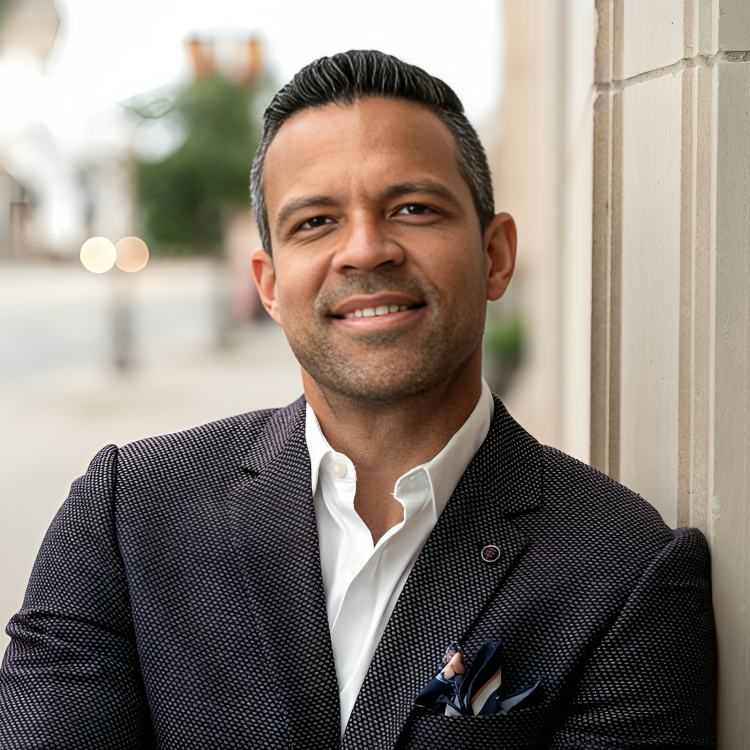
Andre Fernandez
CEO & Co-Founder of Invert
Andre Fernandez, CEO of Invert: $26 Million Raised to Build the Future of Nature-Base Carbon Credits


Manik Suri
Manik Suri, CEO and Founder of Therma: $30 Million Raised to Build the Cooling Intelligence Category


Antoine Welter
CEO and Co-Founder of Circu Li-ion
Antoine Welter, CEO & Co-Founder of Circu Li-ion: $8.5 Million Raised to Build the Future of Battery Upcycling


Gary Ong
CEO & Founder of Celadyne
Gary Ong, CEO & Founder of Celadyne: $5 Million Raised to Power the Future of Green Hydrogen Production

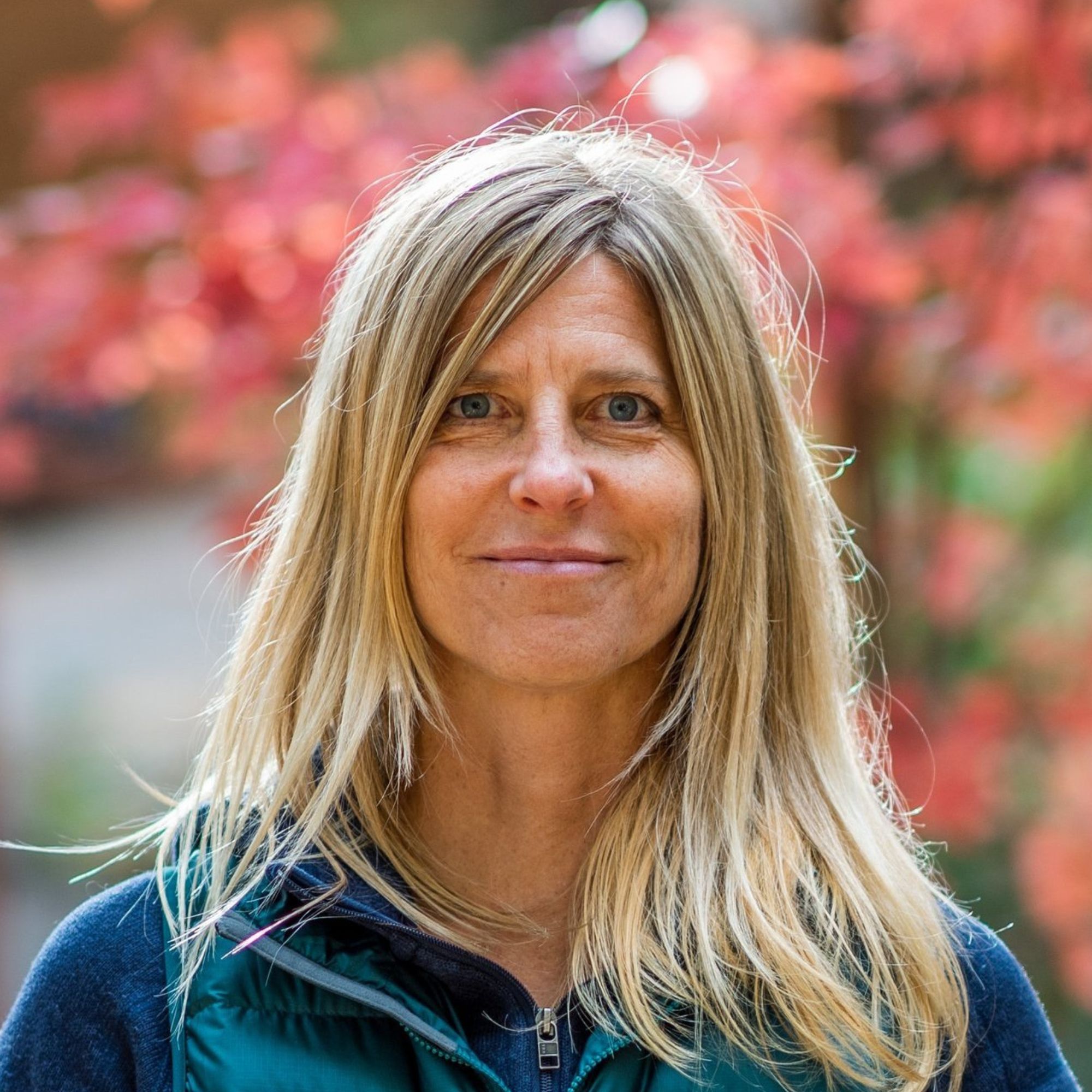
Allison Wolff
CEO of Vibrant Planet
Allison Wolff, CEO at Vibrant Planet: $34 Million Raised to Build the Future of Land Management Restoration

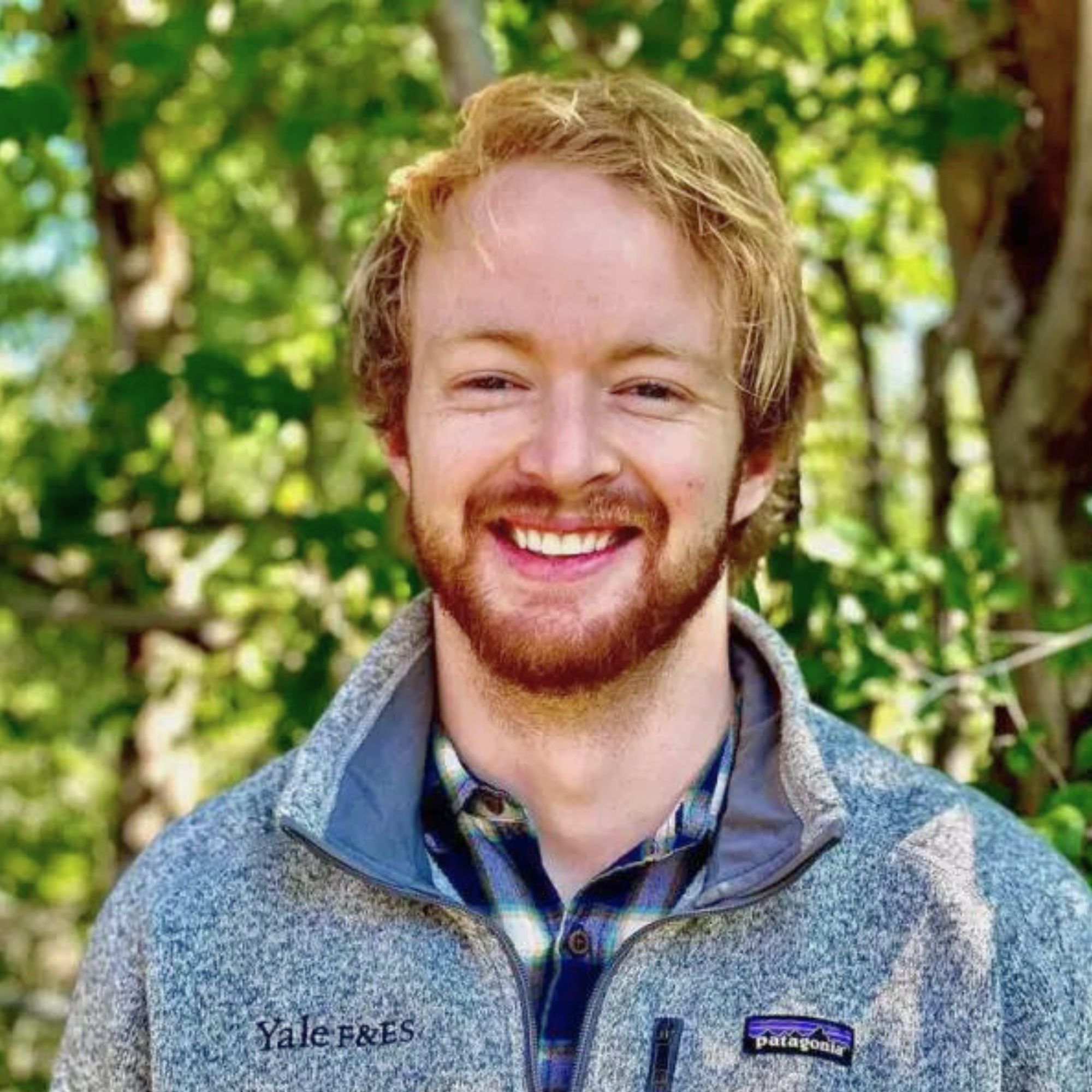
Ben Christensen
CEO of Cambium Carbon
Ben Christensen, CEO of Cambium Carbon: $5.5 Million Raised to Build a new Category of Sustainable Wood


Allen Kramer
Co-Founder & COO of Crux
Allen Kramer, Co-Founder and COO of Crux: $27 Million Raised to Power the Future of Sustainable Finance

Jan Willem Rombouts
CEO & Founder of Beebop AI
Jan Willem Rombouts, CEO & Founder of Beebop AI: $5.5 Million Raised to Power Grid Orchestration for the Clean Energy Transition

Omar Abou-Sayed
Co-Founder & Executive Chairman of Vaulted Deep
Omar Abou-Sayed, Co-Founder & Executive Chairman of Vaulted Deep: $8 Million Raised to Build the Future of Carbon Removal


Elizabeth Muller
Co-Founder and Executive Chair of Deep Isolation
Elizabeth Muller, Co-Founder and Executive Chair of the Board of Deep Isolation: Over $22 Million Raised to Build the Future of Nuclear Waste Disposal


Joshua Riedy
CEO and Founder of Thread
Joshua Riedy, CEO and Founder of Thread: $20 Million Raised to Power the Future of Energy Grid Maintenance


Kameale Terry
Co-Founder and CEO of ChargerHelp!
Kameale Terry, Co-Founder and CEO of ChargerHelp!: Over $20 Million Raised to Build the Future of Electric Vehicle Infrastructure


Alisa Valderrama
Co-founder and CEO of FutureProof Technologies
Alisa Valderrama, Co-Founder and CEO of FutureProof Technologies: $10 Million Raised to Translate Climate and Weather and Financial Risk with Unprecedented Accuracy

Adam Silver
CEO & Co-Founder of Plural Energy
Adam Silver, CEO & Co-Founder of Plural Energy: $2.8 Million Raised to Build the Future of Clean Energy Investing


Curtis VanWalleghem
Co-Founder & CEO, Board Member of Hydrostor
Curtis VanWalleghem, CEO of Hydrostor: $322 Million Raised to Build the Future of Energy Storage
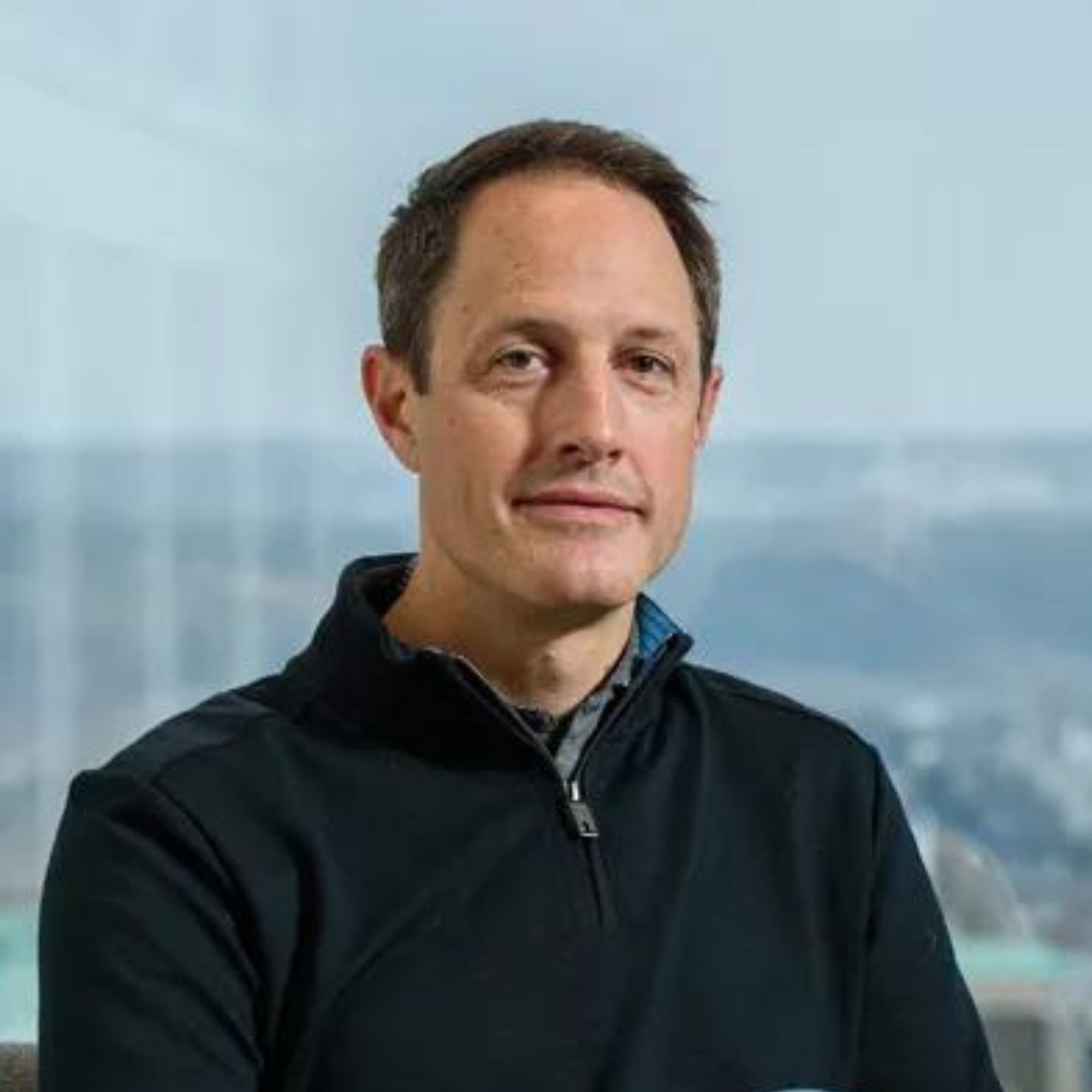
Michael Belenkie
CEO and President of Entropy
Michael Belenkie, CEO and President of Entropy: $300 Million Raised to Spearhead Efficiency and Innovation in the Carbon Capture Economy

John Belizaire
CEO of Soluna
John Belizaire, CEO of Soluna: $180 Million Raised to Power the Future of Renewable Computing for AI


Alexis Normand
CEO & Co-founder of Greenly
Alexis Normand, CEO & Co-Founder of Greenly: $78 Million Raised to Build the Future of Carbon Management


Mukund Karanjikar
CEO of CleanJoule
Mukund Karanjikar, CEO of CleanJoule: $55 Million Raised to Power the Future of Sustainable Aviation Fuel


Kenneth Herschel
CEO and Co-Founder of Viggo
Kenneth Herschel, CEO and Co-Founder of Viggo: Nearly $6 Million Raised to Build the Future of EV Charging Infrastructure


Gary Lewis
CEO & Co-Founder of Resourcify
Gary Lewis, CEO & Co-Founder of Resourcify: $15 Million Raised to Build the Future of Recycling Management

Marina Azcarate
Head of Marketing of Mitiga Solutions
Marina Azcarate, Head of Marketing at Mitiga Solutions: Driving the Future of Climate Risk with Cutting-Edge Tech

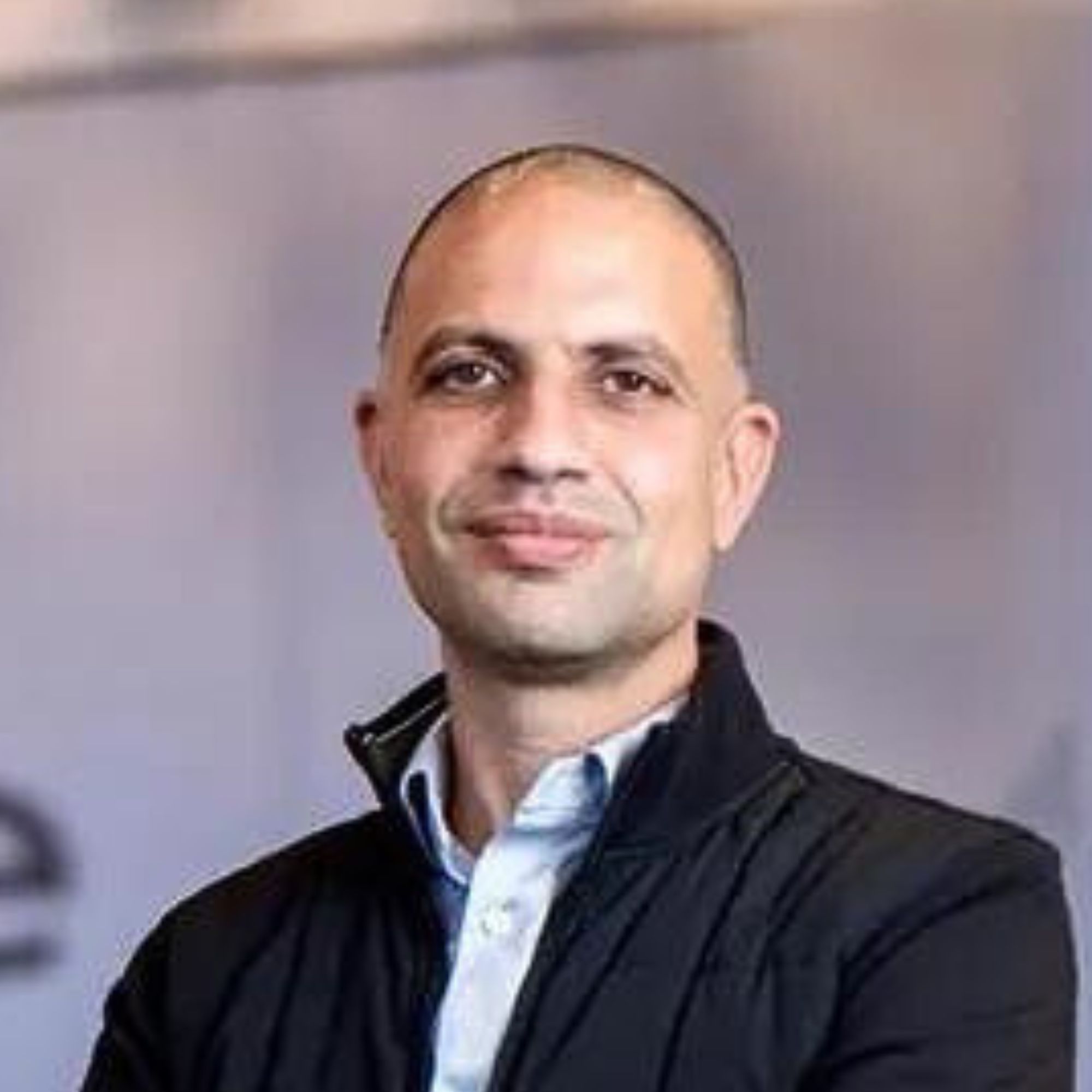
Khaled Hassounah
CEO & Founder of Ample
Khaled Hassounah, CEO and Founder of Ample: $290M Raised to Build the Future of EV Batteries

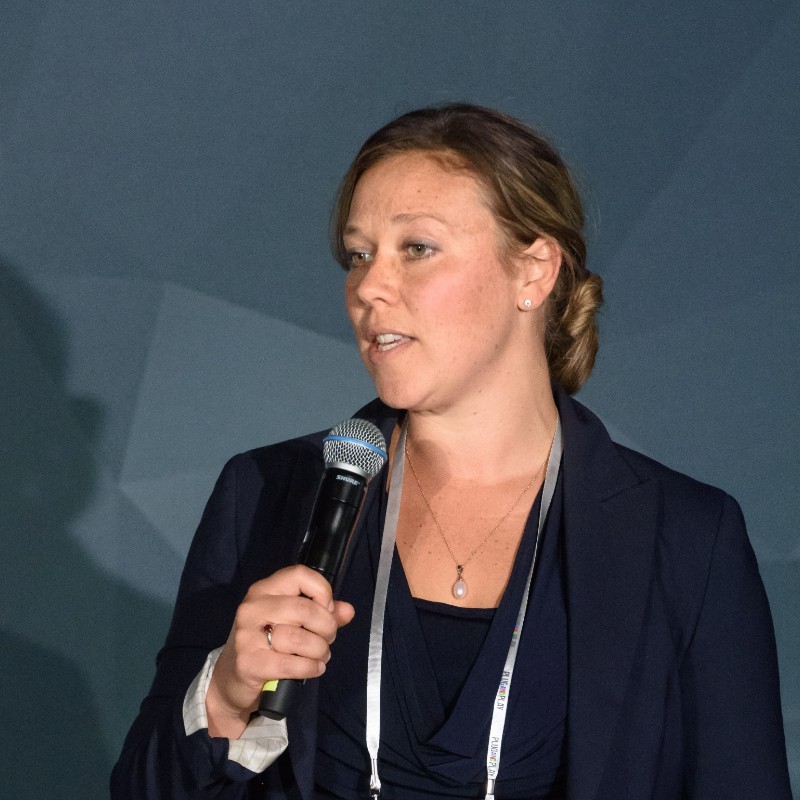
Virginia Klausmeier
CEO and Founder of Sylvatex
Virginia Klausmeier, CEO and Founder of Sylvatex: More Than $15 Million Raised to Build a Better Class of Sustainable Materials and Drive the Green Revolution


Saurabh Kapoor
CEO & Co-Founder of Metafuels
Saurabh Kapoor, CEO & Co-Founder of Metafuels: $22 Million Raised to Pioneer Synthetic Aviation Fuel Technology


Thibault Castagne
CEO and Founder of Vianova
Thibault Castagne, CEO and Founder of Vianova: $8.8 Million Raised to Build the Go-To Operating System for the Mobility World


Greg Newbloom
CEO and Founder of Membrion
Greg Newbloom, CEO & Founder of Membrion: $23 Million Raised to Build the Future of Industrial Wastewater Treatment Solutions


Kentaro Kawamori
CEO & Co-Founder of Persefoni
Kentaro Kawamori, CEO & Co-Founder of Persefoni: $114 Million Raised to Build the Climate Disclosure & Carbon Management Category


Scott Graybeal
CEO of Caelux
Scott Graybeal, CEO of Caelux: $70 Million Raised to Transform Solar Energy with Perovskite Technology


Chris Hare
CEO of PRTI
Chris Hare, CEO of PRTI: Over $25 Million Raised to Transform America’s Billions of Waste Tires into Valuable Commodities


Quentin Scrimshire
CEO and Co-Founder of Modo Energy
Quentin Scrimshire, CEO & Co-Founder of Modo Energy: $20 Million Raised to Build the Energy Asset Benchmarking Category

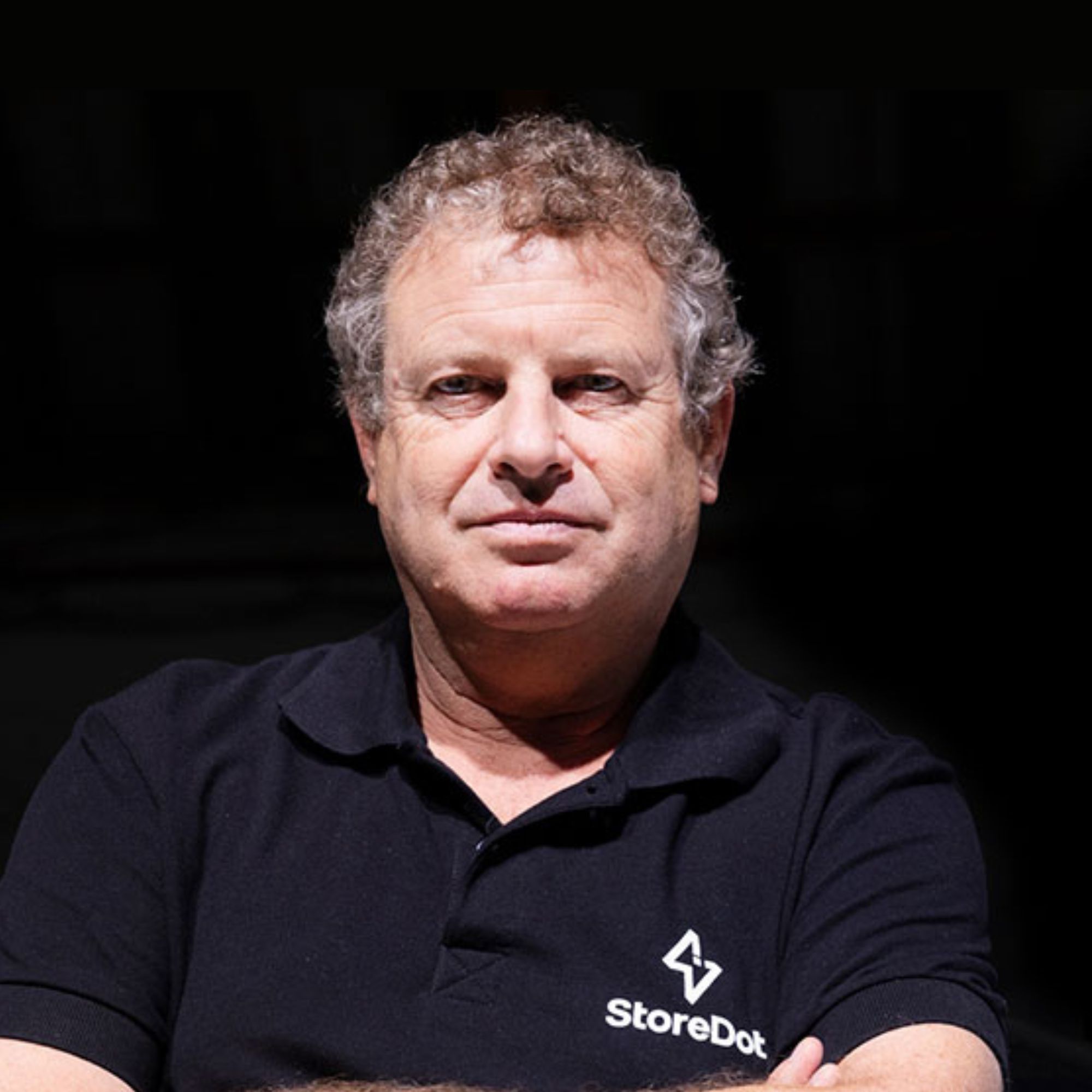
Doron Myersdorf
CEO & Co-Founder of StoreDot
Doron Myersdorf, CEO & Co-Founder of StoreDot : $200 Million Raised to Power the Future of Electric Vehicles


Tim Weiss
CEO and Co-Founder of Optera
Tim Weiss, CEO & Co-Founder of Optera: $17.5 Million Raised to Build the Future of Carbon Management and Accounting


Daniel Betts
CEO & Co-Founder of Blue Frontier
Daniel Betts, CEO of Blue Frontier: $47.8M Raised to Revolutionize Air Conditioning with Energy-Storing Smart Climate Technology

Preston Bryant
Co-Founder, Executive Chair, & Chief Commercial Officer of Momentum
Preston Bryant, Co-Founder of Momentum: $20 Million Raised to Transform Battery Recycling Through Materials Science Innovation


Zak Lefevre
CEO of ChargeLab
Zak Lefevre, CEO of ChargeLab: $20 Million Raised to Build the Operating System for EV Chargers

Adam Tank
Co-Founder of Transcend
Adam Tank, Co-Founder of Transcend: $35 Million Raised to Revolutionize Critical Infrastructure Design


Joselyn Lai
CEO & Co-Founder of Bedrock Energy
Joselyn Lai, CEO & Co-Founder of Bedrock Energy: $9 Million Raised to Power the Future of Geothermal Energy


Troy Carter
CEO and Co-Founder of Earthshot Labs
Troy Carter, CEO and Co-Founder of Earthshot Labs: $11 Million Raised to Power the Future of Ecosystem Conservation and Restoration

Marc Borrett
CEO & Co-Founder of Reactive Technologies
Marc Borrett, CEO & Co-Founder of Reactive Technologies: $80 Million Raised to Build the Future of Grid Measurement


Francesco Volpe
Founder of Renaissance Fusion
Francesco Volpe, Founder of Renaissance Fusion: $30M Raised to Build the Future of Nuclear Fusion Technology

Tara Bartley
Vice President of Marketing of REsurety
How to Squeeze as Much Value as Possible out of Each Piece of Content

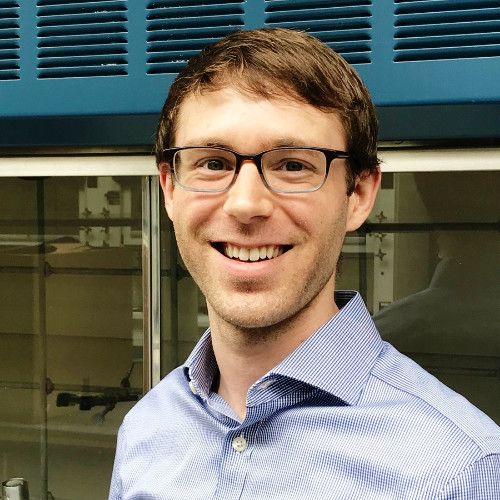
Thomas Sisto
CEO & Co-Founder of XL Batteries
Thomas Sisto, CEO & Co-Founder of XL Batteries: $20 Million Raised to Transform Grid-Scale Energy Storage


Kaitlyn Albertoli
CEO and Co-Founder of Buzz Solutions
Kaitlyn Albertoli, CEO and Co-Founder of Buzz Solutions: Nearly $6 Million Raised to Build the Future of Infrastructure Inspection

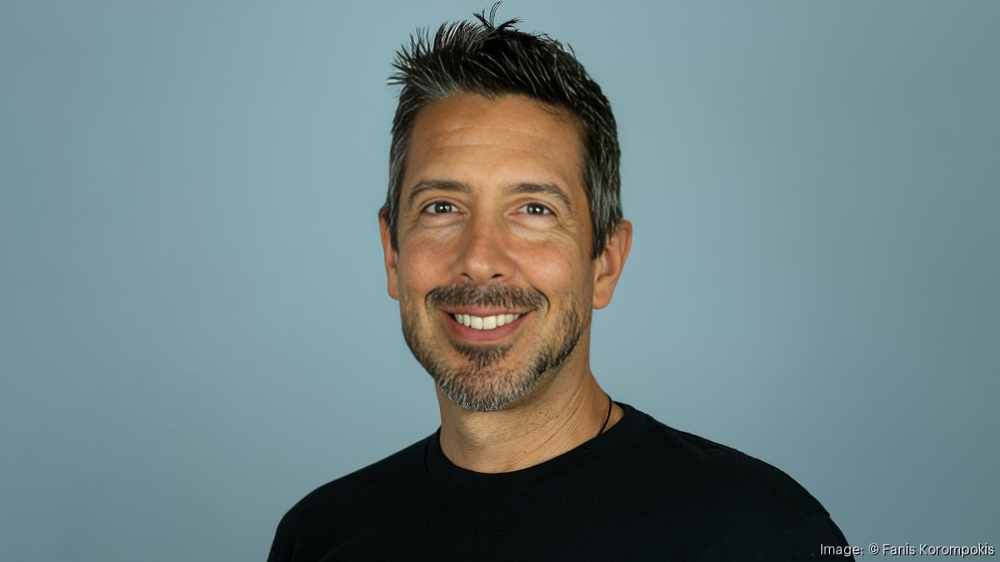
Troy Helming
Founder & CEO of EarthGrid
Troy Helming, Founder & CEO of EarthGrid: $63 Million Raised to Build Underground Super Grids with Plasma Torch Technology


Ali Javidan
Co-Founder of Range Energy
Ali Javidan, Co-Founder of Range Energy: $9 Million Raised to Build the Future of Electric Semi-Trucks


Liz Gilligan
CEO & Founder of Material Evolution
Liz Gilligan, CEO & Founder of Material Evolution: $19 Million Raised to Build the Future of Sustainable Cement


Kathy Hannun
Founder & CTO of Dandelion Energy
Kathy Hannun, Founder & CTO of Dandelion Energy: $175 Million Raised to Democratize Geothermal Energy for Home Heating and Cooling


Matei Stratan
CEO of Ogre
Matei Stratan, CEO of Ogre: $2 Million Raised to Build the Future of Energy Management


Alex Siminoff
Director of Marketing of Parity
Alex Siminoff, Director of Marketing at Parity: Mastering HVAC Optimization with Effective B2B Storytelling


Matt LeDucq
CEO and Co-Founder of Forum Mobility
Matt LeDucq, CEO & Co-Founder of Forum Mobility: $423 Million Raised to Power the Future of Zero-Emission Trucking


Matt Loszak
CEO & Co-Founder of Aalo Atomics
Matt Loszak, CEO & Co-Founder of Aalo Atomics: $33 Million Raised to Build the Future of Nuclear Energy


Javier Marti
CEO and Founder of Divirod
Javier Marti, CEO & Founder of Divirod: $7.6 Million Raised to Build the Google Maps For Water


Dan Forman
CEO and Co-Founder of Copper Labs
Dan Forman, CEO and Co-Founder of Copper Labs: $13 Million Raised to Enable the Data-Driven Utility of the Future


Astrid Atkinson
CEO & Co-Founder of Camus Energy
Astrid Atkinson, CEO of Camus Energy: $20 Million Raised to Build the Future of Grid Management


Greg Fallon
CEO of Geminus
Greg Fallon, CEO of Geminus: $12 Million Raised to Help the Industrial Sector Prepare for the Energy Transition


Iain Cooper
CEO of SeekOps Inc.
Iain Cooper, CEO of SeekOps, $23 Million Raised to Build the Future of Emissions Monitoring

Sandeep Ahuja
CEO of Covetool
Sandeep Ahuja, CEO of Covetool: $36 Million Raised to Power the Future of Building Design with AI


Arvin Ganesan
CEO of Fourth Power
Arvin Ganesan, CEO of Fourth Power: $20 Million Raised to Build the Future of Energy Storage